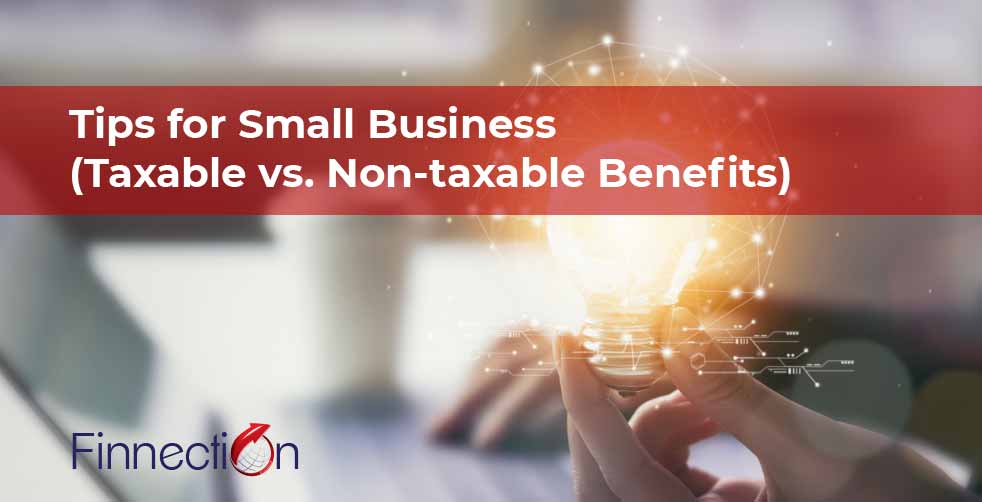Taxable Benefits will be one of the first thing the CRA auditor examines if your company is ever subject to a payroll audit. Unfortunately, most small business owners either fail to disclose these types of earnings or report them erroneously due to the complexity of these sort of earnings.

You should be looking for strategies to reduce your tax liability and increase your after-tax income as a Canadian business owner. If you’re new to doing business in Canada, you might not be familiar with the tax regulations that are relevant to sole proprietors and small firms. The majority of business owners are aware that it is unlawful to deduct blatantly personal expenses and if this is found out CRA will take an action against this. It is not as easy as it may seem to deal with taxes and payroll. Some advantages are taxable while others are not; some benefits may occasionally be taxed but not usually.
What counts as a business expense?
Only expenses involved for business objectives may be deducted from taxes as business expenses. Advertising, meals and entertainment, insurance, office costs, attorney fees, rent and maintenance, real estate taxes, wages and benefits, utilities, transportation cost, automobile expenses, capital cost allowance, and business-use of-home costs are just a few examples of expenses that can be claimed as legitimate business expenses.
Here’s a quick overview of the most popular Taxable and Non-Taxable Benefits.
The following items must be included on an employee’s (or shareholder’s) T4 as Taxable Benefits.
- Free meals and lodging, or lodging offered for immensely low prices
- Free or inexpensive housing
- Personal usage of a company vehicle
- Paying for personal or lifestyle expenditures or providing allowances for such
- Employer-paid auto expenditures on behalf of the employee
- Vacations, gifts, and incentives
- Tuition fees and scholarships
- Group life insurance premiums
- Loans with no interest or lower interest rate
- Employee stock option schemes – when shares are sold or options are exercised, a taxable benefit result.
- Frequent flyer miles from work are used for personal travel or other gain.
These things typically don’t have to be disclosed because they are Non-Taxable Benefits.
- A fair travel allowance may include a per-kilometer fee and a per-diem rate for lodging and meals. A mileage allowance must be based on business kilometres, supported by a travel record, and there cannot be any other kind of compensation. The employee is allowed to write off expenses that go beyond the amount given.
- Discounts on goods that the employer normally sells
- uniforms or unique clothing, or the maintenance of such
- Leisure facilities if provided to all employees
- If it is advantageous to the employer’s business, social or athletic club dues may be paid.
- Director’s liability insurance
- Moving costs: The repayment of a loss on the sale of the home is subject to limits
- Contributions from employers to pension plans
- Special work sites, remote locations, and people of the North are exempt from the rule.
- health insurance rates for medical or dental plans
- Premiums paid for a disability plan may be included as a taxable benefit by the employee, in which case any payments made would be tax-free.
Penalties for failure to pay taxes on your small business income
Tax evasion and the failure to pay small business taxes on time are serious offences in Canada. If the CRA finds that you deliberately filed a tax return that had errors or omissions, you may be subject to a penalty. Criminal convictions, substantial fines, and even jail time are possible outcomes in serious tax evasion cases.
You should be aware of the taxes that apply to you, the procedure for filing tax returns, and any potential tax deductions. You may learn all the fundamental details you need to know about small businesses taxable vs. Non-taxable benefits from this overview.
For more business tips, contact finnection via email at info@finnection.ca or call us at (647) 795-5462
Disclaimer: Above information is subject to change and represent the views of the author. It is shared for educational purposes only. Readers are advised to use their own judgement and seek specific professional advice before making any decision. Finnection Inc. is not liable for any actions taken by reader based on the information shared in this article. You may consult with us before using this information for any purpose.
